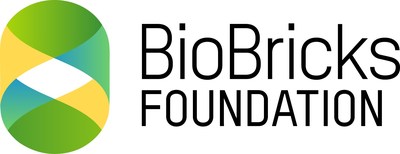|
11.10.2018 23:29:00
|
BioBricks Foundation Announces Publication of OpenMTA in Nature Biotechnology
SAN FRANCISCO, Oct. 11, 2018 /PRNewswire/ -- The OpenMTA is a Material Transfer Agreement (MTA) designed to support openness, sharing, and innovation in biology and biotechnology. Material Transfer Agreements (MTAs) provide the legal frameworks within which research organizations define the terms and conditions for sharing their materials - everything from DNA molecules to plant seeds to patient samples.

Use of the OpenMTA allows redistribution and commercial use of materials, while respecting rights of creators and promoting safe practices. The new standardized framework also eases the administrative burden for technology transfer offices, negating the need to negotiate unique terms for individual transfers of widely-used material.
The OpenMTA launches today with a commentary published in the journal Nature Biotechnology. It provides a new way to exchange materials commonly used in biological research and engineering, complementing existing, more restrictive arrangements. The OpenMTA also promotes access for researchers and individuals working in less privileged institutions and world regions.
The agreement was developed through a collaboration led by the San Francisco-based BioBricks Foundation and the UK-based OpenPlant Synthetic Biology Research Centre. The collaboration brought together an international working group of researchers, technology transfer professionals, social scientists, and legal experts to inform the creation of a framework that could improve sharing of biomaterials. The team identified five design goals on which to base the OpenMTA: (i) access, (ii) attribution, (iii) reuse, (iv) redistribution, and (v) non-discrimination. Additional design goals include safety and sharing in an international context.
Dr. Linda Kahl, Senior Counsel of the BioBricks Foundation, said: "We encourage organizations worldwide to sign the OpenMTA Master Agreement and start using it. In five years' time my ideal is for the OpenMTA to be the default option for the transfer of research materials." "Instead of automatically placing restrictions on materials, people will ask whether restrictions on use and redistribution are appropriate and instead use the OpenMTA to promote sharing and innovation."
Dr Nicola Patron, Synthetic Biology Group Leader at the Earlham Institute, added: "We have already used the OpenMTA to provide 'DNA parts' developed for our own research to scientists at several international research organizations. We hope that use of the OpenMTA will enable these materials to be shared and reused by plant scientists and biotechnologists everywhere. We believe that easy access to research materials accelerates both fundamental research and the application of scientific research to agriculture, industry and medicine."
Drew Endy, President of the BioBricks Foundation and Professor at Stanford University, noted: "The OpenMTA provides a permissive foundation supporting many communities and interests. It is a needed step forward in enabling all people to benefit from next generation biotechnologies. I encourage universities, corporations, funders, and charities to consider making the OpenMTA their default materials transfer option."
Dr. Colette Matthewman, Programme Manager for the OpenPlant Synthetic Biology Research Centre, also noted: "We hope to see the OpenMTA enable an international flow of non-proprietary tools between academic, government, NGO and industry researchers, to be used, reused and expanded upon to develop new tools and innovations."
Professor Jim Haseloff, University of Cambridge, UK, added: "The OpenMTA provides a new pathway for open exchange of DNA components - the basic building blocks for new engineering approaches in biology. It is a necessary step towards building a commons that will underpin and democratize access to future biotechnological advances and sustainable industries."
The new agreement was also welcomed by Dr Joanne Kamens, Executive Director at Addgene, a leading global charity that helps scientists share plasmids.
"Addgene is excited to see this new option becoming available to increase reagent sharing and scientific collaboration. This kind of open exchange drives innovation and accelerates research," she said.
Dr. Fernán Federici, an early adopter of the OpenMTA, from the Millennium Institute for Integrative Biology (iBio), Santiago, Chile, said: "The OpenMTA will be particularly useful in Latin America, allowing researchers to redistribute materials imported from overseas sources, reducing shipping costs and waiting times for future local users. We are implementing it in an international project that requires sharing genetic tools among labs in four different continents. We believe, the OpenMTA will support projects based on community-sourced resources and distributed repositories that lead to more fluid collaborations."
See the full commentary in Nature Biotechnology at https://rdcu.be/81zc and visit https://biobricks.org/openmta/ to become a signatory.
About the BioBricks Foundation
The BioBricks Foundation is a US-based public-benefit organization dedicated to building with biology in an open and ethical manner to benefit all people and the planet. For more information, please visit https://www.biobricks.org
About OpenPlant
The OpenPlant Synthetic Biology Research Centre is a joint initiative between the University of Cambridge, John Innes Centre and Earlham Institute, funded by the UK Biotechnology and biological Sciences Research Council and the Engineering and Physics Council as part of the UK Synthetic Biology for Growth programme. For more information, please visit https://www.openplant.org
Press Contact:
contact@biobricks.org
![]() View original content to download multimedia:http://www.prnewswire.com/news-releases/biobricks-foundation-announces-publication-of-openmta-in-nature-biotechnology-300729943.html
View original content to download multimedia:http://www.prnewswire.com/news-releases/biobricks-foundation-announces-publication-of-openmta-in-nature-biotechnology-300729943.html
SOURCE BioBricks Foundation
 Der finanzen.at Ratgeber für Aktien!
Der finanzen.at Ratgeber für Aktien!
Wenn Sie mehr über das Thema Aktien erfahren wollen, finden Sie in unserem Ratgeber viele interessante Artikel dazu!
Jetzt informieren!